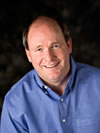MURDER GENES AND DANGEROUS MINDS: NEW ROLES FOR GENETICS AND NEUROSCIENCE IN THE COURTS?
Gary E. Marchant, J.D. - Professor of Law; Executive Director & Faculty Fellow, Center for the Study of Law, Science, & Technology; Lincoln Professor of Emerging Technologies, Law & Ethics at Arizona State University
Friday October 17, 2008
12:30-1:30 p.m.
Crawford Hall - Room 9
Inamori Center
Case Western Reserve University
Dear Colleagues,
Should genetics excuse criminal acts? Are some people biologically predisposed to be violent? How should the courts and society manage such people? These are among the questions Dr. Marchant considers in his work, and they follow logically from the continual quest to identify genetic causes of illness and behavior. Professor Marchant is Executive Director of the Center for Law, Science & Technology at ASU; he has been a partner in the law firm of Kirkland & Ellis and Editor-in-Chief of the Harvard Journal of Law & Technology; and he holds a Ph.D. in Genetics from the University of British Columbia and a J.D. from Harvard Law School.
Parking will not be available in the university visitors lot this week due to a board of trustees meeting.
As usual, we will gather in Room 9 of the Inamori International Center for Ethics and Excellence, on the lower level of Crawford Hall, for free cookies, beverages, and brown bag lunch.
Best regards,
Joe White
About Our Guest
Professor Gary Marchant was Editor-in-Chief of the Harvard Journal of Law & Technology and editor of the Harvard Environmental Law Review. Prior to joining the ASU faculty in 1999, he was a partner at the Washington, D.C., office of the law firm of Kirkland & Ellis, where his practice focused on environmental and administrative law. Professor Marchant teaches Environmental Law, Law, Science & Technology, Genetics and the Law, and Environmental Justice. His current research interests include the use of genetic information in environmental regulation and toxic torts, the precautionary principle, and legal issues relating to genetically modified foods.
Genomics and Toxic Substances: Part I-Toxicogenomics, 33 Environmental Law Reporter 10071-10093 (2003).
Gary E. Marchant & Douglas Sylvester, Transnational Models for Regulation of Nanotechnology, J. Law, Medicine & Ethics (in press review, 2006)
Gary E. Marchant, Genetic Data in Toxic Tort Litigation, 14 J. Law & Policy 7-37 (2006).
Gary E. Marchant, Property Rights and Benefit-Sharing for DNA Donors?, 45 Jurimetrics 153-178 (2005)
Cary Coglianese and Gary E. Marchant, Shifting Sands: The Limits of Science in Setting Risk Standards, 152 Penn. L. Rev. 1255-1360 (2004).
Friday Lunch Upcoming Topics and Speakers:
October 24: Seniors in the 2008 Election with Robert H. Binstock, Professor of Aging, Health and Society.
October 31: Halloween Special: Election Preview with Karen Beckwith, Professor of Political Science; Justin Buchler, Assistant Professor of Political Science; and Andrew Lucker, Adjunct Assistant Professor of Political Science.
November 7: Responding to the Foreclosure Crisis with Jim Rokakis, Cuyahoga County Treasurer.
November 14: Charging for Car Insurance by the Mile: Good Business and Good for Energy and the Environment? With Richard Hutchinson, General Manager for the “My Rate” program, Progressive Insurance.
November 21: TBA
November 28: Thanksgiving Break
December 5: TBA
The Friday Lunch discussions are held on the lower (ground) level of
Crawford Hall. Visitors with mobility issues may find it easiest to take advantage of special arrangements we have made. On most Fridays, a few parking spaces in the V.I.P. lot in between Crawford Hall and Amasa Stone Chapel are held for participants in the lunch discussion.
Visitors then can avoid walking up the hill to the first floor of Crawford by entering the building on the ground level, through the garage area under the building. The further door on the left in that garage will be left unlocked during the period before the Friday lunch. On occasion, parking will be unavailable because of other university events.
For more information about these and other Center for Policy Studies programs,
please see http://policy.case.edu.


